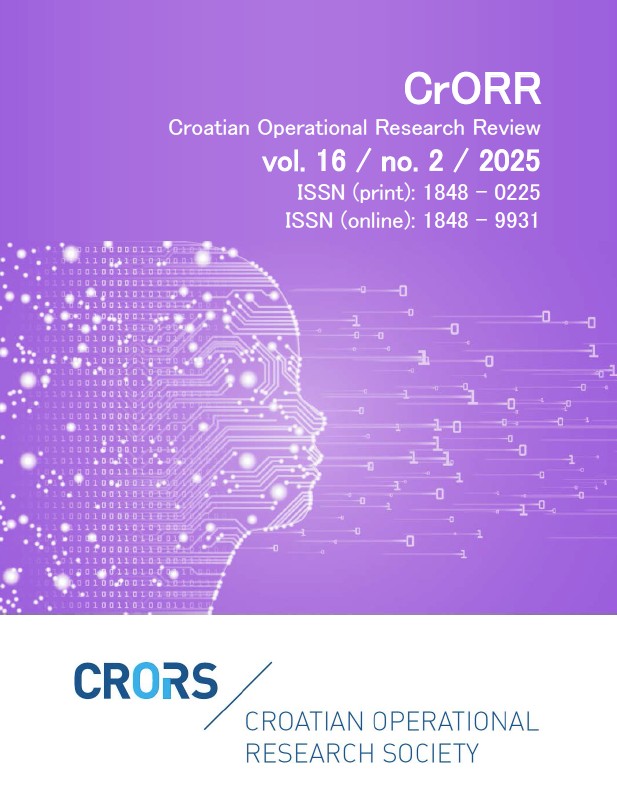A memetic NSGA-III for green flexible production with real-time energy costs and emissions
Abstract
The use of renewable energies strengthens decarbonization strategies.
To integrate volatile renewable sources, energy systems require grid expansion, storage capabilities, or flexible consumption.
This study focuses on industries that adapt production to real-time energy markets, offering flexible consumption to the grid.
Flexible production considers not only traditional goals like minimizing production time, but also minimizing energy costs and emissions, thereby enhancing the sustainability of businesses. However, existing research focuses on single goals, neglects the combination of makespan, energy costs, and emissions, or assumes constant or periodic tariffs instead of a dynamic energy market. We present a novel memetic NSGA-III to minimize makespan, energy cost, and emissions, integrating real energy market data, and allowing manufacturers to adapt energy consumption to current grid conditions.
Evaluating it with benchmark instances from literature and real energy market data, we explore the trade-offs between objectives, showcasing potential savings in energy costs and emissions on estimated Pareto fronts.
Downloads
Published
Issue
Section
License
- Authors retain copyright and grant the journal right of first publication with the work simultaneously licensed under a Creative Commons Attribution License that allows others to share the work with an acknowledgement of the work's authorship and initial publication in this journal
- Authors are able to enter into separate, additional contractual arrangements for the non-exclusive distribution of the journal's published version of the work (e.g., post it to an institutional repository or publish it in a book), with an acknowledgement of its initial publication in this journal.
- Authors are permitted and encouraged to post their work online (e.g., in institutional repositories or on their website) prior to and during the submission process, as it can lead to productive exchanges, as well as earlier and greater citation of published work (See The Effect of Open Access).


